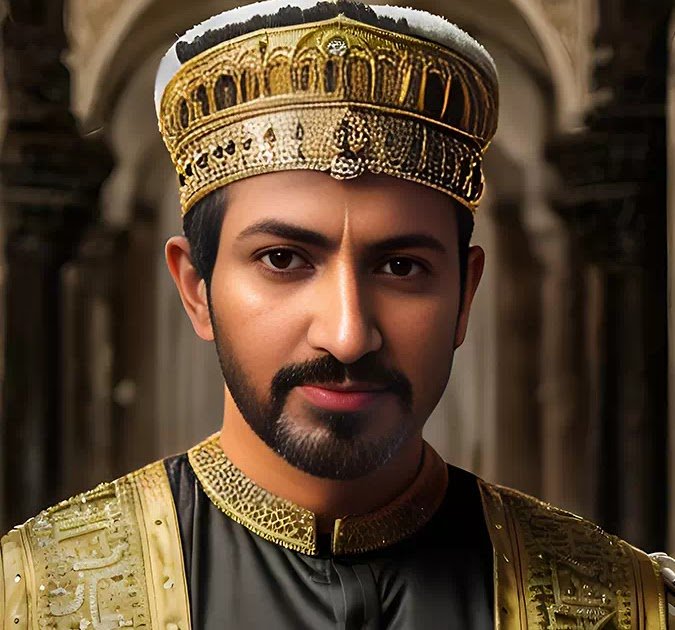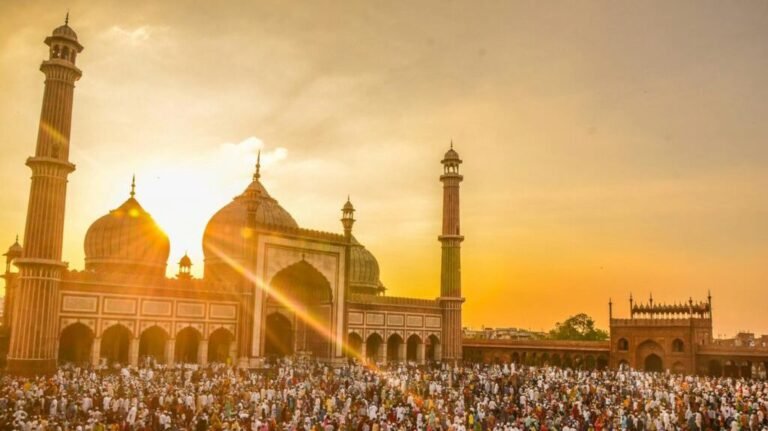Sikander Lodi Introduction:
- In this post, we delve into the depths of Sikandar Lodi life and his era. Sikander Lodi was an important and influential figure in Indian history, whose contributions were significant in the fields of politics, literature, religion, and social structure.
- In this post, we explore the main chapters of his life, understand the political and cultural nature of Sikander Lodi reign, and analyze his impact from the perspective of his times. This post is for all those readers who are interested in Indian history and the depths of Sikander Lodi ‘s life.
Birth of Sikandar Lodi

- Sikandar Lodi was born in 1451 AD. He was a member of the Lodi dynasty and his father’s name was Bahlol Lodi. Swarnkar was the son of a Hindu mother. Sikandar Lodi learned a lot from the inspired works of his father and the legacy of his struggles.
- In this aspect of Sikandar Lodi’s life, we get to know more about his family, his childhood days, and his educational process.
- Sikandar Lodi’s childhood name was Nizam Khan. Being born in a royal family, he was taught the art of war and war skills since childhood.
Rise of Lodi dynasty

The rise of the Lodi dynasty was an important event in Indian history. This Lodi dynasty was formed in North India and was established by Bahlol Lodi. The enterprising and courageous nature of this dynasty makes it different from other dynasties.
– Bahlol Lodi had conquered many areas of North India during the time of Emperor Mohammad Shah (1434–1445 AD). Bahlol Lodhi was the commander of Mohammad Shah’s army at that time. Brahmin Lodhi established the Lodi dynasty by defeating Alauddin Shah (1445-1451 AD) in the battle of Delhi and established the Lodi dynasty with his courage and contribution and revealed the future path of the Lodi dynasty.
Sikandar Lodhi’s youth

- There were many rulers in the Delhi Sultanate who served the Delhi Sultanate a lot in their youth. Qutubuddin Aibak who established the Delhi Sultanate. Iltutmish, Balban who gave a new shape to the post of Sultan. Rulers like Alauddin Khilji and Firoz Shah Tughlaq also served the Delhi Sultanate well in their youth.
- Sikandar Lodhi’s youth was an important chapter of his life. When he was a young man, he served in the army of the Lodi Empire under the command of his father Bahlol Lodi. During this time, Sikander Lodi demonstrated his qualifications and commitment and he won his father’s confidence.
- In Sikandar Lodi’s youth, he strengthened the army of the Lodi Empire through his dedication and determination. He played his role fully in the war and made his army victorious through his courage and ability.
- In his youth, Sikander Lodi developed his thinking and skills and along with his father, he made a significant contribution in building the Lodi Empire. The experiences of this time made Alexander a powerful and powerful leader.
- Sultan Sikander Lodi, in his youth, had banned Muslims from taking out ‘Tazia’ and Muslim ‘women’ from going to the Mazar of Pirs and saints. In anger, he also gave breaking order to a mosque in Jainpur built by Sarki rulers. Even though Sikandar Lodi may have taken back this order on the advice of the scholars, his mistake is considered to be the result of Sikander Lodi’s youth.
Coronation of Sikandar Lodi (1489-1517 AD)

- After the death of Bahlol Lodi, his eldest son and successor Nizam Khan was crowned. On 17 July 1489 AD, Sikandar Lodhi was installed on the throne of Delhi.
- The coronation of Sikandar Lodi was an important moment in his life, establishing him as the ruler of the Lodi Empire. After ascending the throne of Delhi Sultanate, Sikandar Lodi assumed the title of ‘Sultan Sikandar Shah’.
- The coronation of Sikandar Lodi was celebrated as a religious and social ritual. He was given the fullness of power and authority during his coronation. On this occasion, he was also blessed to have jurisdiction over various states and seas.
- The coronation of Sikander Lodi elevated him to higher heights of rule and played an important role in building the prestige of the Lodi Empire. Sikander Lodi became a prominent and influential ruler of North India after his coronation. The second ruler of the Lodi dynasty was Sikander Lodi.
- After the death of Bahlol Lodi, many problems suddenly arose in front of the Lodi dynasty. It was very important for Sikandar Lodi to solve these problems in order to run his Sultanate smoothly. Sikandar Lodi was an ambitious person and he solved these problems very easily.
Problems And Solutions of Sikander Lodi Empire

- First of all, Sikandar Lodi had to face the big problem of his uncle Alam Khan, Isha Khan, Azam Humayun (nephew of Sultan) and Sardar Tatar Khan of Jalar. And this problem was a family problem.
- After becoming Sultan, Sikandar Lodi fought with all his opponents one by one.
- Alexander defeated all of them one by one in the battle and ended his family problem.
- Second in front of Sikandar Lodi The big problem was his brother Barbak Shah sitting in Jainpur. Sikandar Lodi I launched a war campaign against his elder brother Barbak Shah to subdue Jainpur. In which he soon got success.
- The next problem facing Sikandar Lodi was Hussain Shah Sharqi, who was sitting on the throne of Bihar. After Jainpur, Sikandar Lodi also launched a military campaign against Hussain Shah Sharqi in 1494 AD. Both the armies faced each other near Banaras and the war started, initially Hussain Shah Sharqi was successful.
- Sikandar Lodi was an ambitious person. He was taught military skills and combat skills since childhood. Sikandar Lodi gathered his army and then divided it into several detachments and attacked Hussain Shah Sharqi’s army from all sides, due to which Hussain Shah Sharqi’s soldiers could not handle it and had to face defeat.
The rise and fall of the Lodi empire
- The rise and fall of the Lodi dynasty were important components of Indian history. This empire was established by Bahlol Lodi in the 15th century and was later expanded by Sikandar Lodi.
- The rise of the Lodi Empire occurred through wars and political measures in various regions. Bahlol Lodi with his powerful military conquered many states and established his empire. He studied new political and cultural policies and tried to lead the society on the path of prosperity.
- However, the fall of the Lodi dynasty was equally significant. Following its rise, the empire faced pressure in various fields, particularly international pressure. During the rule of Ibrahim Lodi, the empire needed to deal with internal and external problems, leading it to decline.
Influence of literature and culture in Lodi Empire
- Literature and culture had a significant influence during the reign of the Lodi Empire. Many litterateurs and poets of this time wrote excellent poetry, treatises, and plays. The influence of literary currents is visible in the politics and society of the Lodi Empire.
- Many poets wrote poetry in praise of the king of Lodi dynasty and considered his contribution a symbol of prosperity. The creation of literary texts encouraged cultural upliftment in the society and the Lodi period is remembered as a literary royal era.
- The rulers of the Lodi Empire provided enthusiasm and support towards literature and culture. He encouraged various fields of art and literature and established the Lodi Empire as a literary and cultural heritage.
Defeat of Lodi dynasty
- The defeat of the Lodi dynasty was an important event in Indian history. During the reign of the Lodi Empire, many outstanding challenges were faced in the political, social, and military spheres.
- One of the main reasons for the defeat of the Lodi dynasty was their internal conflict and confusion. Due to internal disputes and confusion in the kingdom, the Lodi dynasty found it difficult to deal with external enemies.
- Also, the Lodi Empire faced problems in achieving victory in the wars with its external enemies. They were defeated by the Mughal emperor Babar and after this the Lodi dynasty came to an end.
- The last Sultan of Lodi dynasty and Delhi Sultanate was Ibrahim Lodi who was defeated by Babar and died in the war. Even though Ibrahim Lodi died in the war and was defeated, Ibrahim Lodi was an important person and Lodi. He was also the most successful Sultan of the dynasty.
- The defeat of the Lodi dynasty gave a new change to Indian history and cleared the way for the rise of the Mughal Empire. This incident also provided harmony with the inspiration of Indian history.
Sikandar Lodi’s warriors and army

- Sikandar Lodi’s warriors and army played an important role in his reign. There were many warriors and powerful soldiers in his army, who played an important role in the protection and expansion of the Lodi empire.
- Sikandar Lodi had made his army strong and capable of fighting. Their warriors were learned, courageous, and capable, playing their part in various conflicts and wars.
- Sikandar Lodhi’s army demonstrated its power in North India and he proudly boasted of many victories with his warriors. The warriors of his army were patient and fearless, capable at all times and ready to protect their king.
- Sikandar Lodi’s soldiers were so brave and fearless that the Rajput era, and who is Rajput, is considered to be the oldest and bravest caste in the history of India, which is considered to be expert in running skills. Alexander was also afraid of Lodi’s soldiers.
- Even the Marathas, who emerged as a brave caste in India after the fall of the Rajputs, did not have the courage to directly confront the brave soldiers of the Lodi dynasty. A simple and straightforward example of this is the battle of Panipat.
- in the first battle of Panipat, instead of directly confronting Rana Sanga and Ibrahim Lodi, he called Babar of Mongol descent to fight with Ibrahim Lodi. Rana Sanga knew very well that the Marathas could never defeat the Lodi dynasty directly.
Revolt against Lodi dynasty
- The rebellion against the Lodi dynasty was an important event in the reign of the Lodi Empire. At this time, protests against the Lodi rulers emerged in many areas and various societies and social classes agitated against their rule.
- The oscillations damaged the stability of the Lodi empire and challenged the rule. Peasants, poor people, and members of other social classes were involved in these rebellions.
- The rebellion against the Lodi dynasty challenged the morality and power of the emperor. Due to these rebellions, the emperor had to fight several wars to show his power and establish his imperial position.
Sikander Lodi’s legacy and influence

- The legacy and influence of Sikandar Lodi has been an important chapter in Indian history. During his reign, many political, social and cultural changes took place in the Lodi Empire.
- Sikander Lodi handled the legacy of his father Bahlol Lodi well and tried to make the Lodi empire even stronger. He encouraged development in various fields and extended the empire under the leadership of the emperor.
- Under the influence of Sikander Lodi the Lodi Empire experienced reform and growth. His reign was a time of excellence in agriculture, commerce, and cultural sector.
- Sikander Lodi’s legacy and influence gave a new dimension to Indian history and his contribution was important in the stability and development of the empire.
Full Information of Sikandar Lodi
- 1. Birth: 17 July 1458
- Death: 21 November 1517 (age 59 years)
- Place of Burial: Lodhi Garden, New Delhi
- Parents: Bahlul Khan Lodi, Bibi Ambha
- Children: Ibrahim Khan Lodi
- Full Name: Nizam Khan
- Reign: 17 July 1489 – 21 November 1517
- Title: Sikandar Lodi
Major Works of Sikander Lodi
- Sikandar Lodi was not only an ambitious person, he was also an efficient ruler. He did many things for the sake of the people. He also did many such things for the people, which are being used in India even today.
- Agra city: During the reign of Sikandar Lodi, the repeated independence of the rulers of Rajasthan was worrying him. In order to have effective control over the rulers of Rajasthan and to establish control over trade routes, Sikandar Lodi laid the foundation of a city named Agra in 1504 AD. Who has become a great poet today.
- Sikandar Shah: introduced an authentic scale ‘Gajesiknadri‘ for measuring land, which used to be 30 inches, but today it has been changed to 32 inches.
- Sikander Lodi removed the octroi on grains and also removed many other harsh trade taxes, due to which grains, clothes, and all other essential items became cheaper.
- One of the important works of Sikander Lodi was that he removed Zakat from the mines. And no share was taken on the money buried in the ground (if anyone found it).
- Sikander Lodi was the only Sultan of Delhi Sultanate who did not take any part from Khusma. He also made arrangements for free food for the poor.
- Sikander Lodi abolished the internal trade tax during his Sultanate period and once again reorganized the intelligence department with complete strength. And those who think why Delhi Sultanate is famous, they must read our articles like this and know what was the Delhi Sultanate period.



